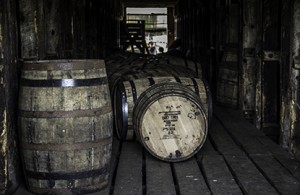Stories
Whisky is a passion to explore. From the history of the spirit to the evolution of the industry, the story of whisky helps fuel that passion. Often, it’s easy to forget that whisky is also a global multibillion dollar industry. The stories of whisky — from news and new releases to in-depth inquires and what goes on behind the label — blend together to help us appreciate the spirit of whisky.

Kentucky’s Congressional Delegation Seeks Tax Relief for Distillers
 June 13, 2013 – Taxes make up a significant portion of the price of a single bottle of whiskey, but one of those taxes may be on the way out. WHAS Television in Louisville reports Kentucky’s Congressional delegation is once again trying to end one of the so-called “barrel taxes” on whiskey and other distilled spirits producers.
June 13, 2013 – Taxes make up a significant portion of the price of a single bottle of whiskey, but one of those taxes may be on the way out. WHAS Television in Louisville reports Kentucky’s Congressional delegation is once again trying to end one of the so-called “barrel taxes” on whiskey and other distilled spirits producers.
The U.S. government (and many states) tax whisky production based on the amount of spirit that comes off the still, and again at the time the final product is bottled. However, distillers who age their product are not allowed to deduct the cost of holding that inventory while it matures, which can be as long as 18 years or more for some Bourbons. While the tax itself can be hard to explain, Kentucky Distillers Association President Eric Gregory compares it to the tax deduction for interest on home mortgages, in which a home owner can deduct the interest on one’s mortgage from income taxes each year. In a phone interview, Gregory explained that the current tax requires distillers to absorb the entire cost of maturing whiskey from the time it is distilled until the time it’s bottled (at which time the costs can be deducted), and puts Bourbon and other producers of aged spirits at a disadvantage to producers of vodka and other spirits that are typically not aged.
Kentucky Republican Rep. Andy Barr of Lexington and his colleagues are re-introducing the Aged Distilled Spirits Competitiveness Act. The bill was last introduced in 2011, but died in committee without receiving a vote.
This issue should not be compared with Kentucky’s state “ad valorem” tax, which imposes an annual property tax on each barrel of whiskey held in a distiller’s inventory. Distillers have complained for years that the tax costs them money that would be reinvested in production and jobs, while putting them at a competitive disadvantage to whiskey distillers in other areas.



